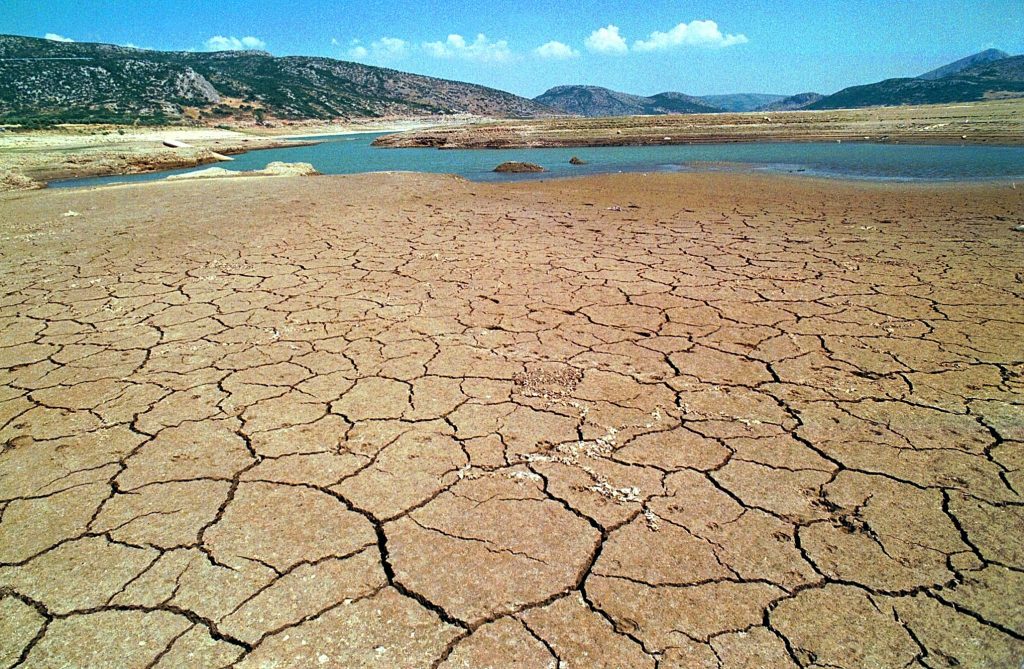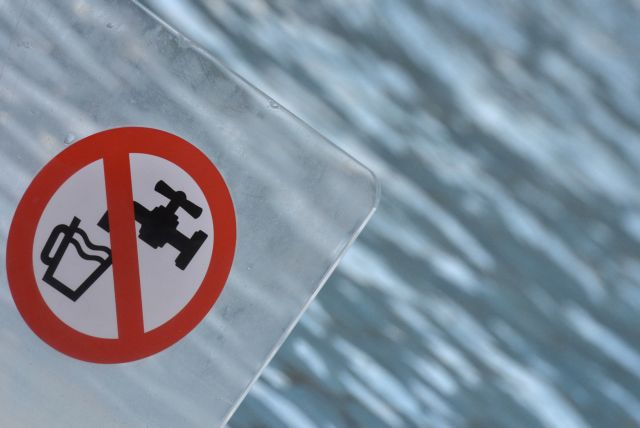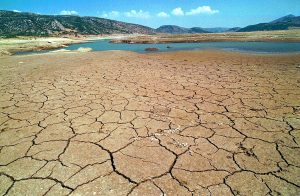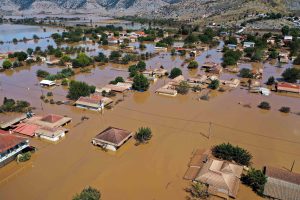A combination of natural and anthropogenic forces are impacting water supplies in the northern Greece coastal region of Halkidiki, leading to its salinization and rendering the water undrinkable without further treatment.
Salinization of water supplies occurs when saline, or salt, is somehow mixed in with fresh water supplies. It is considered pollution because once the salt infiltrates freshwater, it can’t be used by humans as drinking water.
This can happen for a variety of reasons, including geogenic, anthropogenic, and also the knock-on impact of climate change in Greece, which is reducing precipitation and increasing periods of drought.
And, according to reports at AMNA, the salinization of water supplies in Halkidiki is getting worse.
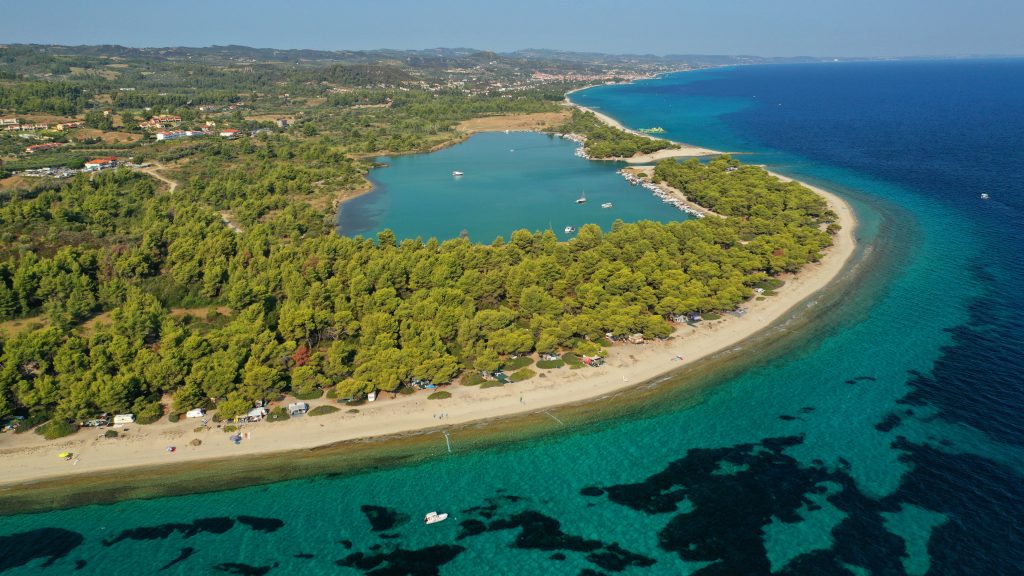
Halkidiki’s Undrinkable Water
The growing issue of salinization in Halkidiki is caused by many factors, according to AMNA.
Some of the main ones are the over-extraction of water in coastal areas to cover agricultural, tourism and residential development needs.
Legal and illegally-drilled boreholes lower fresh groundwater levels, allowing salt water to creep in.
In some areas, groundwater levels are 10 meters lower than normal, and water drawn from illegal boreholes is transported for kilometers, says AMNA.
The problem is getting worse in Halkidiki, which has been facing salinization for years, due to the region’s development and prolonged heatwaves.
In the Polygyros, Halkidiki, 90% of the water is consumed by farmers, compared to just 10% for tourism and residents combined.
In other regions of Greece, however, tourism plays a bigger role in overtaxing water supplies, while AMNA highlights the water-intensive nature of many mining activities.
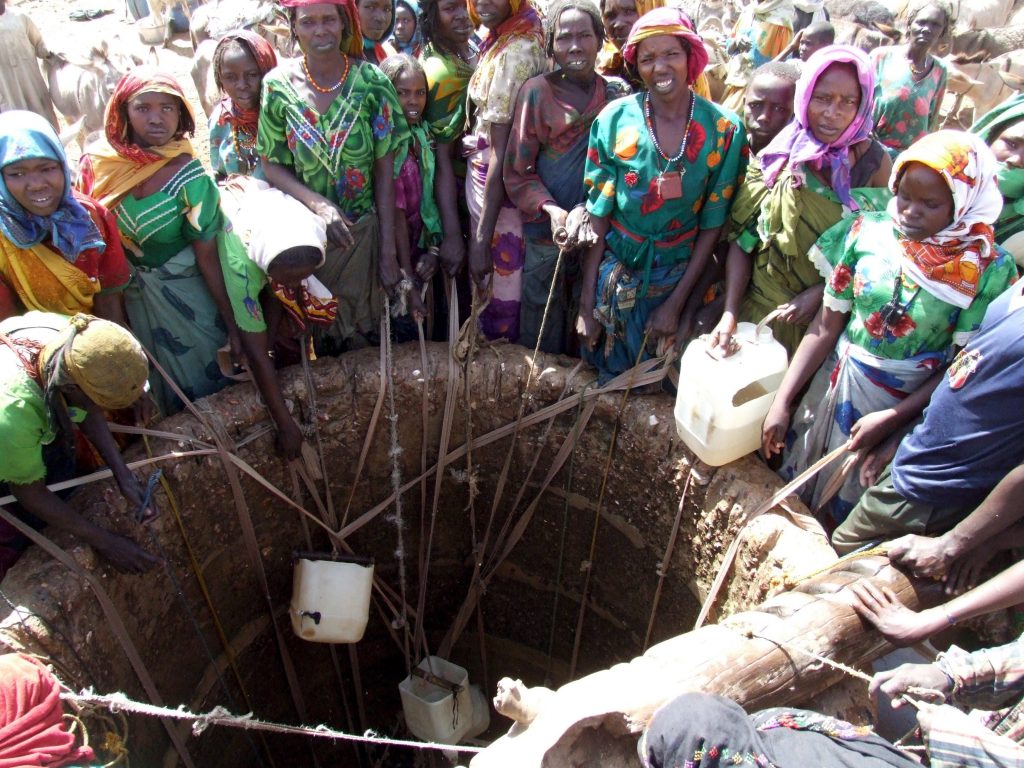
epa00980483 A photograph made available Tuesday 10 April 2007, showing Sudanese women collect water from a borehole at Gaga refugee camp on 22 March 2007. Eastern Chad and Darfur have a similar ethnic make-up and the two governments have swapped charges of backing rebels. Chad shares a long border with Sudan’s lawless Darfur region, where some 200,000 people have died during a four-year conflict which has forced some 2 million people from their homes. EPA/LES NEUHAUS
How Salinization Happens
Groundwater levels act as a barrier to seawater in coastal zones, so low groundwater levels allow the seawater to infiltrate into existing freshwater supplies.
This is a major risk-factor for countries like Greece, which have extensive coastlines and heavy anthropogenic activities in coastal zones that draw on water supplies.
Saliniziation, in general, can be caused by natural (geogenic) factors and human activities, including the following:
- Natural processes
- Rock weathering releases salts that can accumulate in the soil and water bodies.
- Sea Water Intrusion occurs from the over-extraction of groundwater, which lowers the water table in coastal areas, allowing seawater to seep in.
- Evaporation rates are already high in arid and semi-arid regions, which can concentrate salts in soils and surface waters. This is exacerbated by the increased temperatures, reduced precipitation levels and longer periods of drought related to climate change.
- Agricultural Activities
- Irrigation plays a role as using saline water to irrigate crops leads to an accumulation of salt in soils, which leaches into groundwater.
- Chemical fertilizers can also increase the salt content of soil.
- Industrial Activities
- Discharge of Saline Effluents from industries such as mining, chemical manufacturing and food processing can increase saline discharge into water bodies.
- Oil and Gas Extraction processes, such as fracking, bring saline from deep underground to the surface, thus contaminating freshwater supplies.
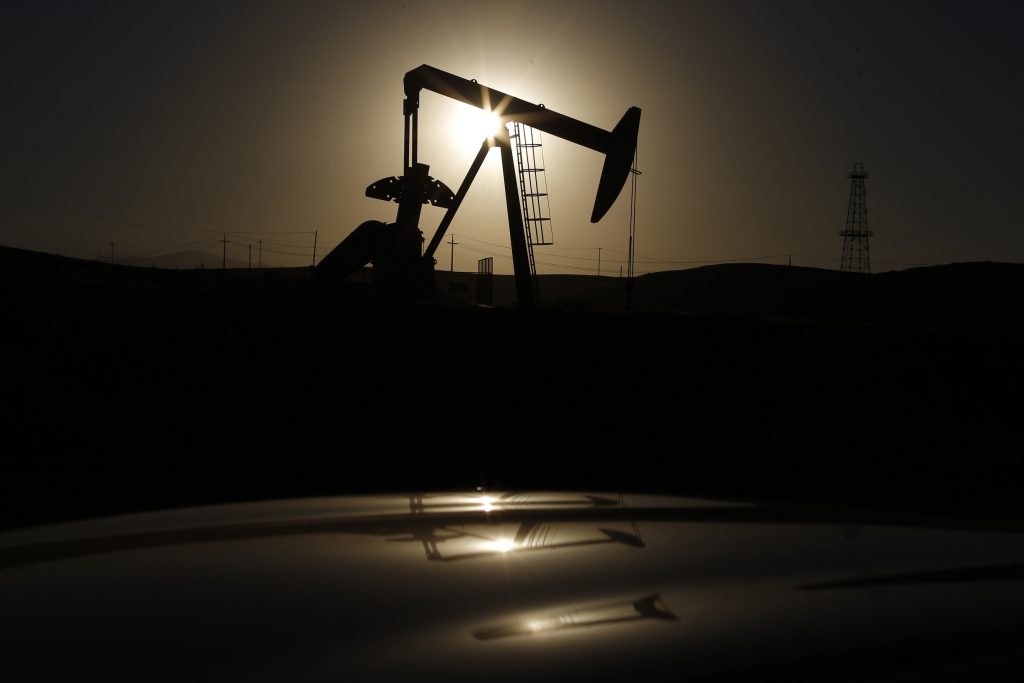
An oil derrick is seen at sunrise near Bakersfield, California October 14, 2014. Brent crude hit a new four-year low on Wednesday before recovering to just under $85 a barrel, as faltering global growth curbed demand for fuel at a time of heavy oversupply. Oil saw its biggest daily fall in more than three years on Tuesday after the West’s energy watchdog slashed its forecasts for world oil demand for this year and 2015. Picture taken October 14, 2014. REUTERS/Lucy Nicholson (UNITED STATES – Tags: ENERGY BUSINESS TPX IMAGES OF THE DAY)
Deforestation, land degredation, and urbanization also interact to further pressure water supplies and increase risks of salinization. As vegetation is cleared, it reduces the uptake of water by plants, increasing runoff and the penetration of pollutants and naturally ocurring salts in the soil.
Soil erosion is also related to the above, increasing salts in water as more bedrock is exposed. These are also interrelated with urbanization, and anthropogenic interventions in nature, like runoff from roads and salts used for de-icing.
What Measures Can be Taken
Natural desalinization of water supplies takes time- months or years- but technical delsalinization can happen faster. However, this comes at a steep financial cost.
According to AMNA, farming methods need to be modernized. Farmers should be using smart agriculture methods, such as drip irrigation as opposed to sprinklers.
Borehole extraction needs to be replaced by irrigation with treated water from biological treatment plants.
Moreover, water supply networks need to be replaced, as many are over 50 years old, resulting in around 40% water loss due to leakage and water theft.
For northern Greece, collaboration with neighboring countries like Albania is also important, as many rivers originate in other countries and eventually come into Greece.

A drone view shows a part of the Eggares irrigation dam, on the island of Naxos, Greece, June 20, 2024. REUTERS/Stelios Misinas
